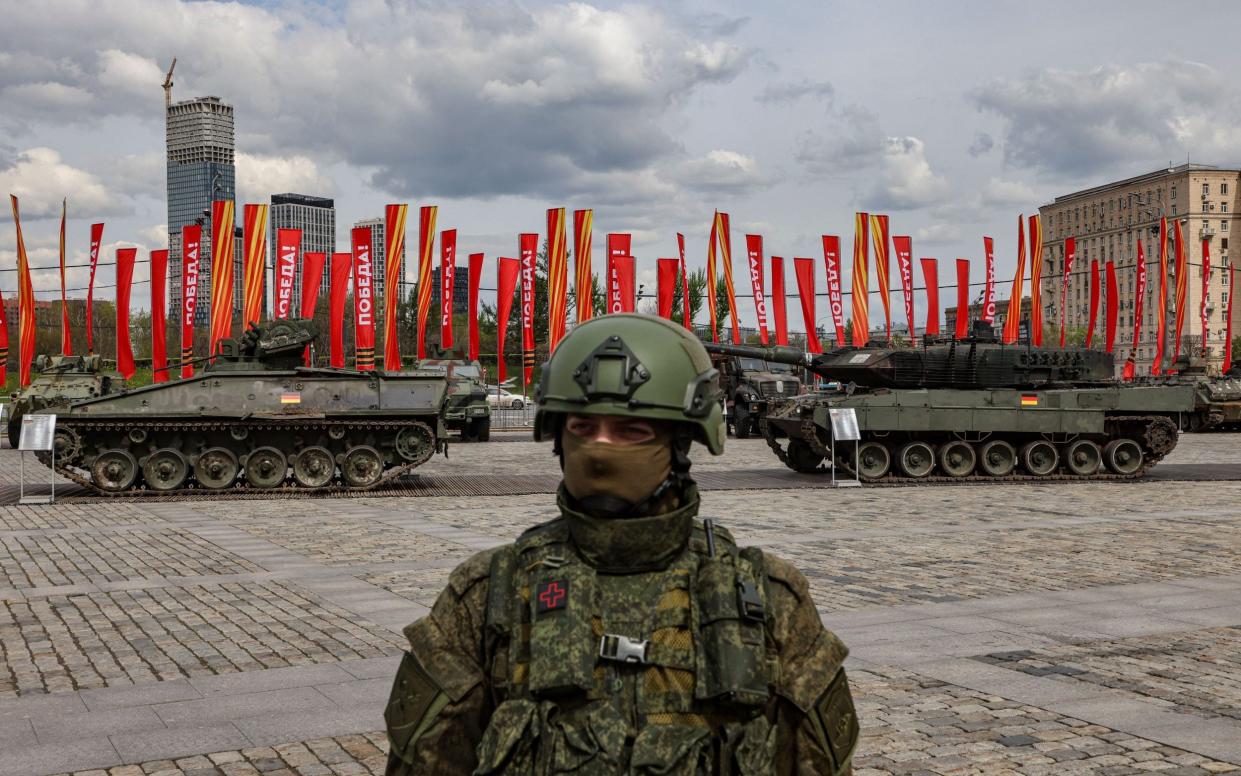Putin’s crushing new offensive could be the end of Ukraine

Missiles from North Korea, drones from Iran, and a massive amount of technical assistance from China. Russian President Vladimir Putin may complain about the backing Ukraine is receiving from its Nato allies, but it is doubtful that Russia would be able to maintain its military offensive without the help it is getting from its motley collection of autocratic friends.
In the latest indication of the support Moscow is receiving for its war effort in Ukraine, a team of UN investigators has concluded that debris from a missile that landed in the Ukrainian city of Kharkiv on January 2 was from a North Korean Hwasong-11 series ballistic missile.
The weapon was supplied to Moscow by Pyongyang, despite North Korea being subjected to a wide range of sanctions imposed in 2006 over its ballistic and nuclear programmes. The missile, moreover, will have been part of the massive consignment of weapons North Korea has sent to Russia in recent months, with South Korean security officials estimating that nearly 7,000 shipping containers filled with missiles, artillery shells and other ammunition have been dispatched since December.
Iranian drones, too, have become a familiar feature of the Ukrainian battlespace, with Russian forces using them regularly to conduct swarm attacks against key Ukrainian infrastructure. China’s support for Putin’s war effort is, by contrast, focused more on helping Russia to rebuild its military industrial base to a level not seen since the Soviet era.
The latest assessment conducted by the Biden administration prior to US Secretary of State Antony Blinken’s visit to Beijing last month found that China was providing significant quantities of machine tools, drone and turbojet engines, and technology for cruise missiles, as well as helping the Russians to expand their satellite capabilities on the Ukrainian battlefield. Chinese and Russian organisations are also coordinating efforts to develop drone production within Russia.
As Blinken commented following his inconclusive visit, China is “providing components that are powering Russia’s brutal war of aggression against Ukraine,” without which it was dubious that the Kremlin would be able to maintain military operations at their current level.
The help Russia is receiving from this unholy alliance of hostile states is certainly having a tangible impact on the battlefield, where Ukraine’s plight was recently described as being “desperate” by senior Ukrainian security officials. This parlous state of affairs, moreover, does not appear to have improved to any significant extent, despite the US and its European allies – including Britain – recently reaffirming their commitment to addressing Kyiv’s dire need for extra munitions.
Ukrainian forces defending the strategic eastern stronghold of Chasiv Yar, for example, are struggling to counter the intensifying number of attacks they are facing from Russian forces and drones, despite the pledges for fresh ammunition made by the US and its allies.
The Russians have identified Chasiv Yar as their next strategic target in eastern Ukraine following their capture of Avdiivka in February. They believe its capture would allow them to command higher ground and target towns and cities further to the west.
Ukrainian commanders on the ground point out that they succeeded in repulsing a previous assault in the region mounted by Russian Wagner mercenaries because they had adequate supplies of artillery shells and long-range missiles. But the Ukrainians’ ability to hold off another Russian push will be severely compromised if further supplies of weapons are not forthcoming very soon.
The shortages facing Ukrainian forces in the east are even more concerning given that the Russians are said to be assembling a 150,000-strong force to launch a fresh offensive in the coming months. The prospect of Russia making further gains, moreover, will be greatly boosted by the fact that the Russians continue to enjoy air superiority, with still no sign of the long-promised F-16 fighters, which the Ukrainians first requested 18 months ago, becoming operational.
At a time when Western leaders believe helping Ukraine to achieve victory is vital to securing their own long-term prospects, the current plight of the Ukrainian forces is not just a matter for concern. It should serve to spur them into action, making sure as a matter of urgency that Kyiv has the firepower it requires to defend itself.
For, as the alliance Moscow has assembled to support its war effort in Ukraine graphically demonstrates, the conflict is, from the West’s perspective, no longer a war against Russia: it is a war against a potent combination of autocratic regimes that, in their different ways, are totally opposed to the concept of liberal western democracy.
Ensuring that Russia is roundly defeated in Ukraine is vital not just in terms of deterring Putin from launching future acts of aggression in Europe: it is essential if the likes of China, Iran and North Korea are also to be made to understand that their antagonistic attitude towards the West will meet with the same resolute response as Russia’s unprovoked invasion of Ukraine.
Just as Russia must be denied victory in Ukraine, so Iran’s attempts to destabilise the Middle East must be resisted, and China’s plan to conquer Taiwan be denied.


